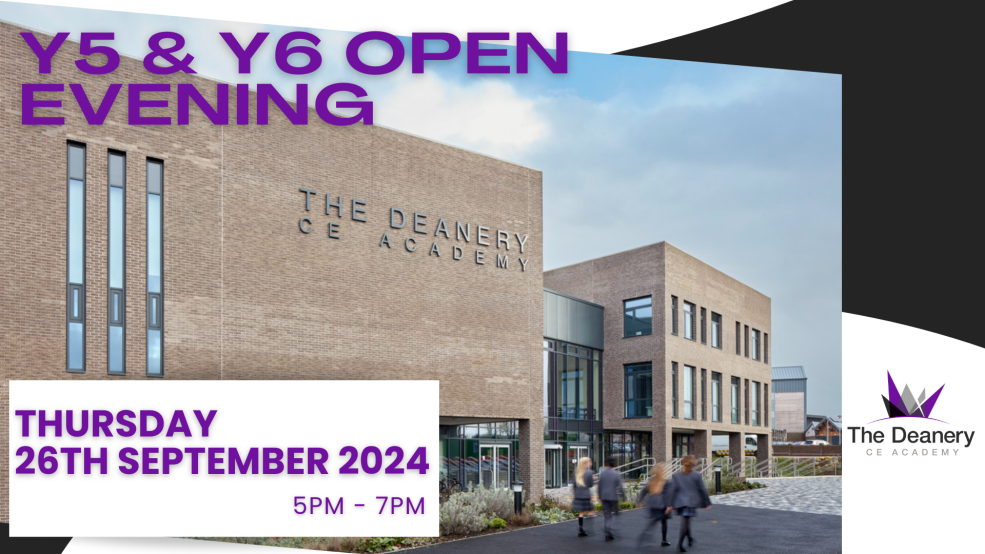


At The Deanery CE Academy, our Computing vision is to develop confident problem-solving and computational thinking skills in our learners and to encourage them to be creative in the use of Information Technology and secure in Digital Literacy.
To equip students with:
Term 1- Introduction to Computer Networks
Year 7 begins with a look at computer networks. This unit begins by introducing how an IT room should be used and password security then continues by defining a network and addressing the benefits of networking, before covering how data is transmitted across networks using protocols.
– Progress homework quiz and milestone task
Term 2 - Introduction to Programming with Scratch
This unit introduces learners to text-based programming with Python. The lessons form a journey that starts with simple programs involving input and output, and gradually moves on through arithmetic operations, randomness, selection, and iteration. Emphasis is placed on tackling common misconceptions and elucidating the mechanics of program execution
- Progress homework quiz and milestone task
Term 3- Spreadsheets
This unit introduces learners to spreadsheets and the concept of cell referencing. We ask them to collect, analyse, and manipulate data, before turning it into graphs and charts. They will be confident working with data.
- Progress homework quiz and milestone task
Term 1 – Layers of Computer systems
Year 8 starts with a Computer systems unit, which is a good follow on from Year 7 Computer networks. This unit takes learners on a tour through the different layers of computing systems: from programs and the operating system, to the physical components that store and execute these programs, to the fundamental binary building blocks that these components consist of.
- Progress homework quiz and milestone task
Term 2 – Introduction to Python Programming
This unit introduces learners to text-based programming with Python. The lessons form a journey that starts with simple programs involving input and output, and gradually moves on through arithmetic operations, randomness, selection, and iteration. Emphasis is placed on tackling common misconceptions and elucidating the mechanics of program execution
Progress homework quiz and milestone task
Term 3 – Representations – from Clay to Silicon
This unit conveys essential knowledge relating to binary representation of numbers and text. The activities gradually introduce learners to binary digits and how they can be used to represent text and numbers. The concepts are linked to practical applications and problems that the learners are familiar with.
- Progress homework quiz and milestone task
Term 1 – Cybersecurity
This unit covers the techniques used by cybercriminals to steal data, disrupt systems, and infiltrate networks. The learners will start by considering the value of their data to organisations and what they might use it for. They will then look at social engineering techniques used by cybercriminals to try to trick users into giving away their personal data. The unit will look at the more common cybercrimes such as hacking, DDoS attacks, and malware, as well as looking at methods to protect ourselves and our networks against these attacks.
- Progress homework quiz and milestone task
Term 2 - Introduction to Python Programming (2022-23 only)
This unit introduces learners to text-based programming with Python. The lessons form a journey that starts with simple programs involving input and output, and gradually moves on through arithmetic operations, randomness, selection, and iteration. Emphasis is placed on tackling common misconceptions and elucidating the mechanics of program execution
- Progress homework quiz and milestone task
Term 3 – Developing for the Web
Students will explore the technologies that make up the internet and World Wide Web. Starting with an exploration of the building blocks of the World Wide Web, HTML, and CSS, learners will investigate how websites are catalogued and organised for effective retrieval using search engines. By the end of the unit, students will have a functioning website.
- Progress homework quiz and milestone task
Key Stage 3 lessons draw on resources and pedagogy from Teach Computing.
Students will follow the OCR specification for the GCSE Computer Science.
OCR’s GCSE (9–1) in Computer Science will encourage students to:
• understand and apply the fundamental principles and concepts of Computer Science, including abstraction, decomposition, logic, algorithms, and data representation
• analyse problems in computational terms through practical experience of solving such problems, including designing, writing and debugging programs
• think creatively, innovatively, analytically, logically and critically
• understand the components that make up digital systems, and how they communicate with one another and with other systems
• understand the impacts of digital technology to the individual and to wider society
• apply mathematical skills relevant to Computer Science.
(OCR website)
Students will study:
Term 1
1.1 System architecture
2.2. Programming fundamentals
Milestone task
Term 2
1.1 System architecture (finish)
1.2 Memory and storage
2.2. Programming fundamentals (continued)
Term 3
1.2 Memory and storage (finish)
January PPE
Term 4
2.1.1 Computational thinking
2.1.2 Designing, creating and refining algorithms
2.2. Programming fundamentals (continued)
1.3 Computer networks, connections and protocols
Milestone task
Term 5
1.3 Computer networks, connections and protocols
2.1.2 Designing, creating and refining algorithms (continued)
2.2. Programming fundamentals (continued)
Milestone task
Term 6
1.3 Computer networks, connections and protocols (finish)
2.1.2 Designing, creating and refining algorithms (continued)
2.2. Programming fundamentals (continued)
End of Y10 PPE
Homework will consist of multiple choice questions and exam style questions.
SENCO – Dr Caroline Kafka-Markey
caroline.kafkamarkey@dcea.org.uk
Chair of Academy Council – Andrew Smith
AndrewSmith.Deanery@dbat.org.uk
Diocese of Bristol Academies Trust Company Number 8156759
Copyright The Deanery CE Academy, DBAT © 2024 - Website by Warp Design & Thinking Creative